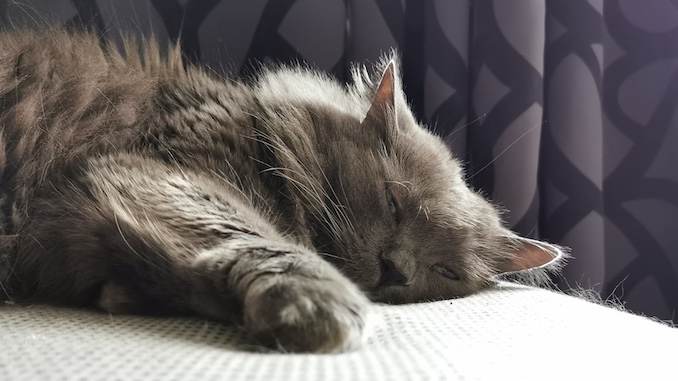The pandemic has resulted in many families adding pets to their loving homes over the past few months. Rescues, puppies, kittens, fish, and turtles have all been welcomed additions but as the fall approaches there may be shifts in the home environment with some of us returning to our offices and kids heading back to school. I’ve been researching how to help dogs transition with home dynamics but what about cats?

I checked in with Dr. Jennifer Freeman, veterinarian and resident go-to for PetSmart Canada for advice on what we can do to help our feline friends adapt to changes at home.
Do cats handle stress differently from dogs? Yes, they do. While dogs can be more prone to barking, excessive whining or even become highly destructive, cats may have “accidents” outside of their litter boxes or excessively groom themselves or show a decrease in appetite.
“Observing any sudden changes in normal behavior will help determine whether your cat might be stressed,” said Dr. Freeman. “For example, excessive grooming, diarrhea, hiding (or, depending on your cat, being extra clingy), decreased appetite or inappropriate eliminations outside of the litter box, are all signs your cat might be experiencing separation anxiety.”
Of course, it’s sometimes difficult to tell if the change in behaviour is stress related. Often this time of year we see allergies also kicking in with our pets. But Dr. Freeman tells us if your cat is having problems with its skin, try to rule out any underlying medical issues first including allergies to food, fleas or seasonal irritants.
It’s common for pet owners to feel the urge to bath pets more often to try and control allergens however over-grooming can also lead to skin irritation or even infections. It is important to monitor this behaviour closely. A visit to the vet to check can determine a diagnosis and provide any medications your cat might need.
So, what about homes that have both dog and cats together? Anything we can do to help alleviate stress with potential changes in the dynamics at home?
“Dogs and cats experience stress differently,” says Dr. Freeman. “If you think one of your pets is experiencing separation anxiety you will have to treat them individually. Remember to never leave a cat and dog alone together until you are certain that they are comfortable with each other.”
I know with my dog I can leave him with a few toys that include a few treats to keep him busy while I go out. Okay, I also leave the radio on so there’s a bit of background noise. Maybe this more for me? But do cat owners do the same to keep cats from being bored or destructive?
There are a few ways to help keep your cat entertained while you return back to a more ‘normal’. Dr. Freeman suggests:
- Keep a steady routine, for example leaving and returning or feeding your cat at the same time every day helps them adjust.
- Encourage separation at home, simply closing your door can help your cat become customized to separation.
- Encourage play, try leaving toys around the house. She recommends toys like the Whisker City Natural Chirping Mice or treat your cat with a catnip toy like the Whisker City Cactus Compressed Catnip Cat Toy (both found on PetSmart Canada’s site)
- Provide some background noise like a radio, it helps your cat stay engaged and feel less alone.
- Provide perches for your cat and the ability to look out a window.




